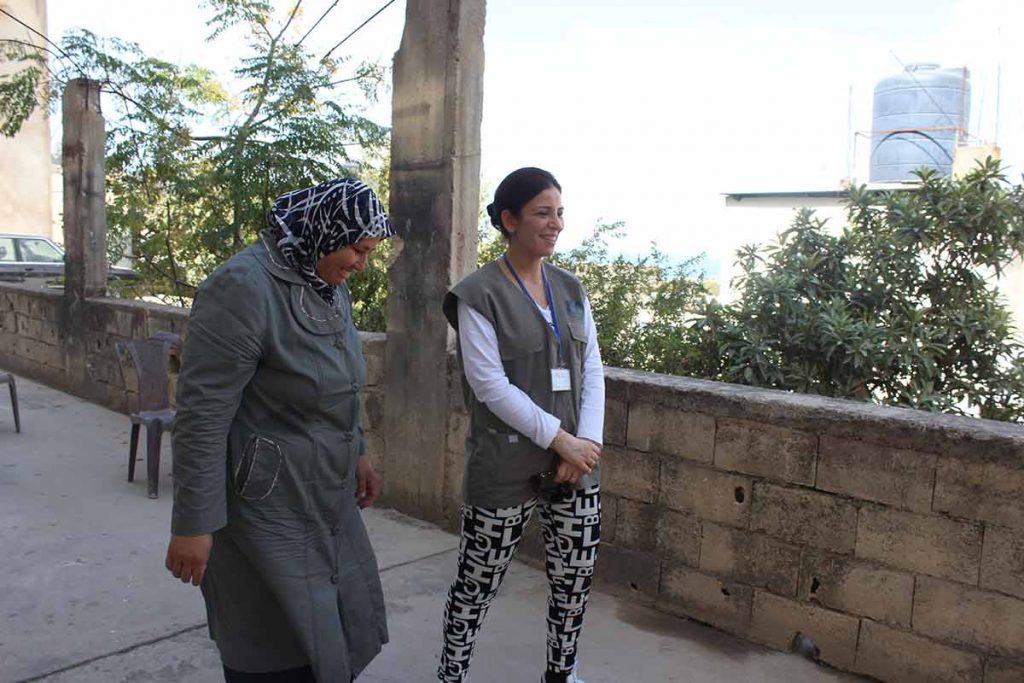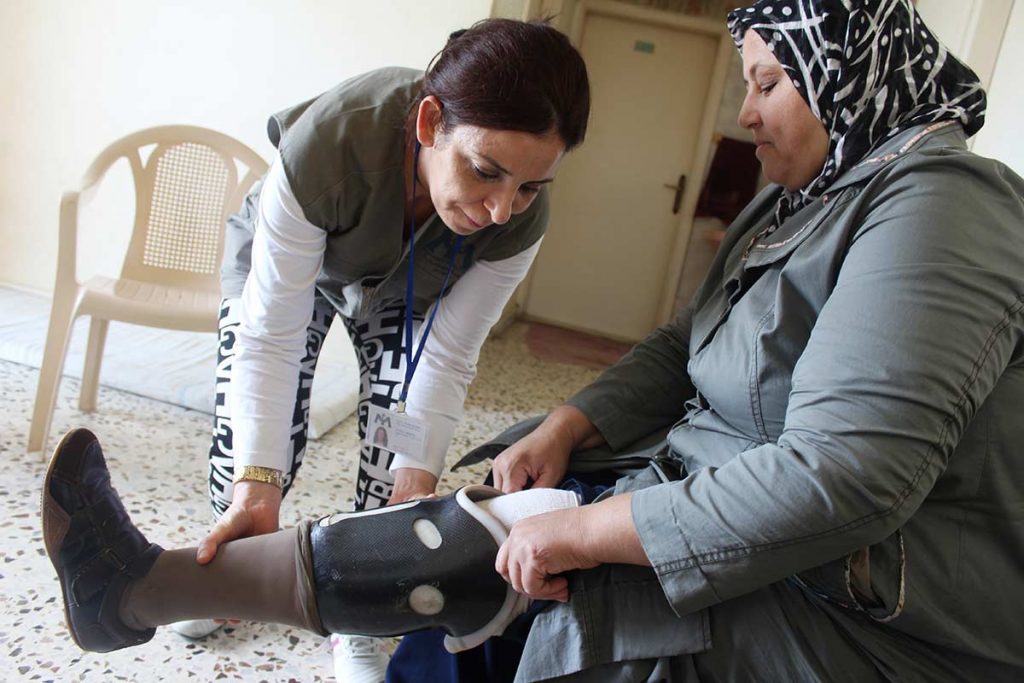Em Abed* is a 42-year-old Syrian refugee living in Akkar, Lebanon. She comes from Al Qusseir, a small city in mountainous western Syria less than 10 miles from the border with Lebanon that has witnessed major fighting since the civil war began four and one-half years ago. She was a farmer back in Syria. From her new “home” in Lebanon, she recalls her journey to safety in an ambulance through the war-torn landscape:
“In January 2012, the situation in Al Qusseir was getting worse every day, so much so that I asked my cousin to take our five children to stay with her in Damascus for their safety. My husband and I fled to another area of Al Qusseir. As farm owners, we wanted to stay close to our agricultural lands because we live and work on them. In February, after a long day of farming, my husband drove me back to our home, which is one mile away from our fields. I wanted to check on our home and take out some food from the freezer. When we arrived, there was tension in the neighborhood.
“People were scared as there were rumors of upcoming attacks. My husband returned to work at the farm. I took what I needed from the freezer. As I was leaving, a mortar shell hit our house. My nephew who was playing in the courtyard died in front of my eyes. I fell to the floor bleeding from the stomach and left leg. Our neighbor found me and took me to a mobile clinic. My injuries were so bad that I needed special treatment. Two days later, my husband took me in an ambulance to Tripoli in Lebanon. On our way, I was still conscious and I had a bad feeling. As I got into the ambulance, I asked the medics if I could look out from the back windows. I felt I was saying farewell to my country.”
Em Abed didn’t want to tell her children about her injury. But they got the news from their relative in Damascus.
“Doctors at Tripoli Hospital told me the arteries in my left leg had been severed and that I needed special care to avoid losing my leg.., she recalled. “The leg could have been saved if I had been treated immediately at a specialized hospital in Syria, but nurses at the mobile clinic in Al Qusseir could only stop the bleeding. They couldn’t treat the problem.”
When Em Abed was at hospital, she received an important guest in her room: Rouba Dahi, a senior health officer at International Medical Corps. Rouba was visiting patients there to monitor their progress and evaluate their needs as well as the hospital’s needs as part of International Medical Corps’ intervention early in the war.
“The overloads on Lebanese hospitals at the beginning of the crisis created an urgent need for medical evaluation,” Rouba explained. “Given her deteriorating medical condition, we transferred Em Abed to a nearby hospital that had the necessary equipment and specialized medical team to treat her.”
Still, her condition worsened.
“The infection turned into gangrene in my left leg,” Em Abed said. “Its color became blue and I had the most excruciating pain that I cannot describe. They decided to amputate my leg below the knee. I thought it was the best decision because the ache was killing me.” Em Abed is convinced that were it not for International Medical Corps’ referral, she might have died.
“I went into a coma,” she recalled. “An International Medical Corps physician, Dr. Mohammad Zakaria, was in charge of my case after the amputation. When he saw me the other day—more than three years later—he was surprised that I was healthy again!
“I look fondly upon my life in my homeland. My husband and I used to have our snacks and tea after finishing our work at the farms. As a farmer, I am deeply attached to the land.”
Though she longs for her homeland, Em Abed has found safety and comfort in Akkar.
“I find myself struck by the enormous generosity of the Lebanese people,” she said. A shining example of that is Abu Muhammad who offered her and her family his ground floor apartment.
“We have been living here free of charge for almost four years now. But we don’t want to be a burden anymore. We want to provide for ourselves and not be dependent, so we are leaving soon. The UNHCR (the United Nations refugee agency) just informed us we can obtain residency in Belgium as refugees.” Em Abed’s five children have not been to school for four years now. “I want them to get a good education. We no longer own land so the only tool we have now is education.”

* Names have been changed to protect the identity of those featured in this post
